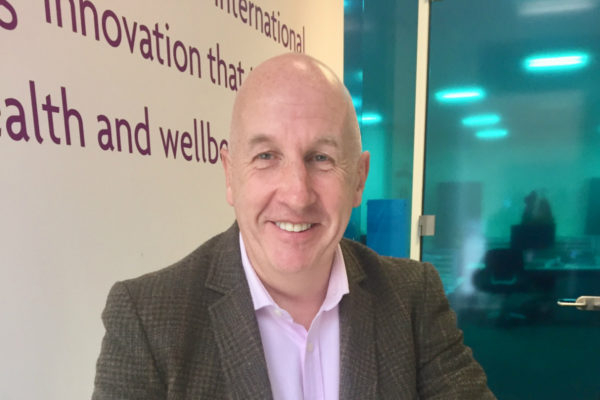This website uses cookies so that we can provide you with the best user experience possible. Cookie information is stored in your browser and performs functions such as recognising you when you return to our website and helping our team to understand which sections of the website you find most interesting and useful.
27 Feb 2020
Nico Nicholas: “I’m half-pharmacist, half-detective” – Understanding the current gaps in information sharing on the frontline

Nico Nicolas is a business analyst on the Salford Royal NHS Delivery Team working on NHSX’s Local Health and Care Record (LHCR) programme in Greater Manchester.
In this blog, Nico shares some of the highlights of the work we’ve conducted with health and care professionals to help inform the people-focused development of the GM Digital Platform.
From an urgent care geriatric ward in Tameside, a dedicated care home GP practice in Salford, the North West Ambulance operations team and paramedics, pharmacists, clinical phycologists, out of hours service teams and with social workers – we’re spending time with frontline professionals across health and care to understand the information sharing issues that they experience day to day.
By understanding how they spend they’re working day and the issues the experience, we’ll be better placed to make sure the technology we’re developing as part of the GM Digital Platform helps to fill these gaps.
Whilst working with frontline professionals, we’ve seen that the themes and gaps in information sharing are common across health and care, including:
- Information isn’t readily available to make the best, most informed decisions
- A vast amount of time and resource is spent chasing information across providers
- Professionals are frustrated about the lack of joined-up information that impacts on the care they’re able to give.
Specifically, some of the feedback we’ve received from professionals is as below:

We spent time with a community pharmacist at a GP practice in Salford that solely looks after care home patients. She described herself as “half pharmacist, half detective” trying to piece together the history of her patients to build a complete understanding their medication needs.
This requires almost half her time chasing her patient’s medications on the telephone – when this could be shared digitally – saving time and resource that could be spent on patient care.
At an urgent care geriatric ward in Tameside, the issues highlighted were similar – highly experienced consultants having to spend a lot of time chasing up notes from referring organisations by telephone – time that could be better spent on patient care if information was digtially shared across organisational boundaries.
With the GMCA’s Urgent Care Lead for Greater Manchester, we heard about the need in ambulances for a single, short summary of a person’s health and care issues presented in a quick, easily digestible format to include allergies, prescriptions, diagnoses, recent medical history and care plans.
According to a advanced paramedic at the North-West Ambulance Service, this would make a significant contribution to improved decision-making and less reliance on the default ‘less risky’ option of taking patients to hospital.
With a mental health referral unit in Trafford, we heard about the challenges around timely referrals and poor quality, non-standardised information being shared by fax or email – a process that could be sped-up dramatically using technology and standardised forms.
At a community care coordination office in Trafford, a senior nurse described the patchwork of different, non-integrated systems that they can access that leaves their view of a patient “like a jigsaw with key pieces missing”. Interoperability between the systems and giving the nurse a single view of the patient would save him time to concentrate on the care of the patient and a complete view of all the agencies involved in the patient’s care.
A nurse consultant at a GP practice looking after Dementia patients talks about the challenges she has joining the information between services involved her patient’s care and that decisions sometimes have to be made based on based on best calculated decision or ‘best guess’ rather than the best information.
She also describes how the improved sharing of advanced care plans and ceilings of care would prevent a lot of inappropriate hospital admissions.
Wherever we spent time, similar stories were repeated across care settings and with different professionals expressing the limitations of current processes around information sharing.
By understanding both patient and professional’s experience, we’ll use this to ensure that the GM Digital Platform delivers the technology needed to improve the lives of those accessing and working in the health and care system – after all, this is a people-focussed project enabled by technology – rather than the other way around.




